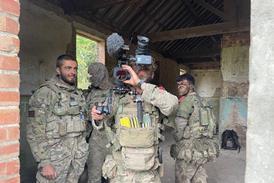Is it really so hard to ensure that people are treated decently?
Should we be shocked by the revelations of sexual harassment and abuse emanating from Hollywood? Or by the news that more than 100 British TV and film professionals have shared terrible experiences with Women in Film & TV?
Appalled, of course. Angry, certainly. But shocked? I’m not so sure.
To an extent, these are society’s problems, played out in our industry. Last Friday was Equal Pay Day, highlighting the continued salary imbalance between men and women in the UK.
And the culture and behaviour that goes on in Westminster is pretty appalling, judging by the dossier of allegations against Tory MPs and the experience of former TV producer Daisy Goodwin, which she detailed this week.
But it is too easy to look elsewhere for blame. The way the British TV industry treats women clearly needs to change – and that needs to happen at all levels.
Women are well represented in top programming jobs and the recent appointment of the first female chief executives of ITV and Channel 4 is an important moment.
”Guidelines from the top set the tone, but everyone needs to take responsibility and act against bad behaviour”
But meaningful change for rank-and-file staff will only be achieved if the values promoted by broadcasters, production companies, post houses and distributors permeate every level.
Guidelines from the top set the tone, but to be effective, they require everyone to take personal responsibility, to call out bad behaviour that they witness, and to act.
A new culture needs to be made real for everyone who works in TV, either in a staff role or as a freelancer. The latter is arguably the most vulnerable group when it comes to inappropriate behaviour, and they need to know that the companies they work for will look out for them, too.
Perhaps the most telling part of Kate Kinninmont’s commentary on what WFTV has uncovered is that “at the root of it, there is usually a senior individual versus a vulnerable person”. That is true of almost all kinds of bullying, from the playground upwards.
Ours is a hierarchical industry that places great emphasis on trust, loyalty and personal relationships. It has a relatively small numbers of taste-makers, a crop of infl uential producers, and an occasionally fawning relationship with talent.
All of which means it is liable to abuse, if attitudes slip or blind eyes are turned. Now is the time to change, while there is momentum behind the issue and so much contempt for the people who have taken advantage of their positions. Is it really so hard to ensure people are treated decently?

Chris Curtis is the editor of Broadcast


























No comments yet